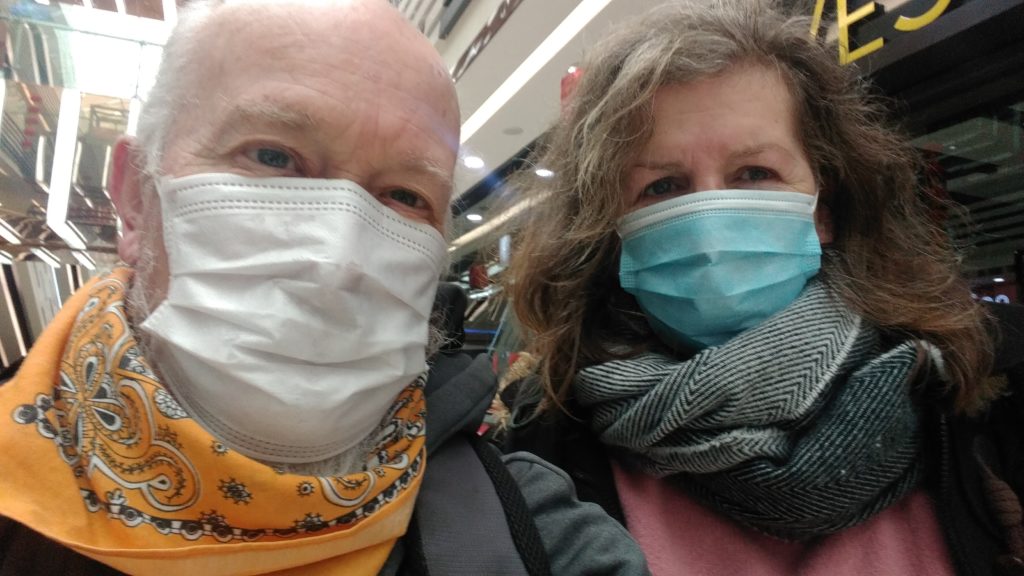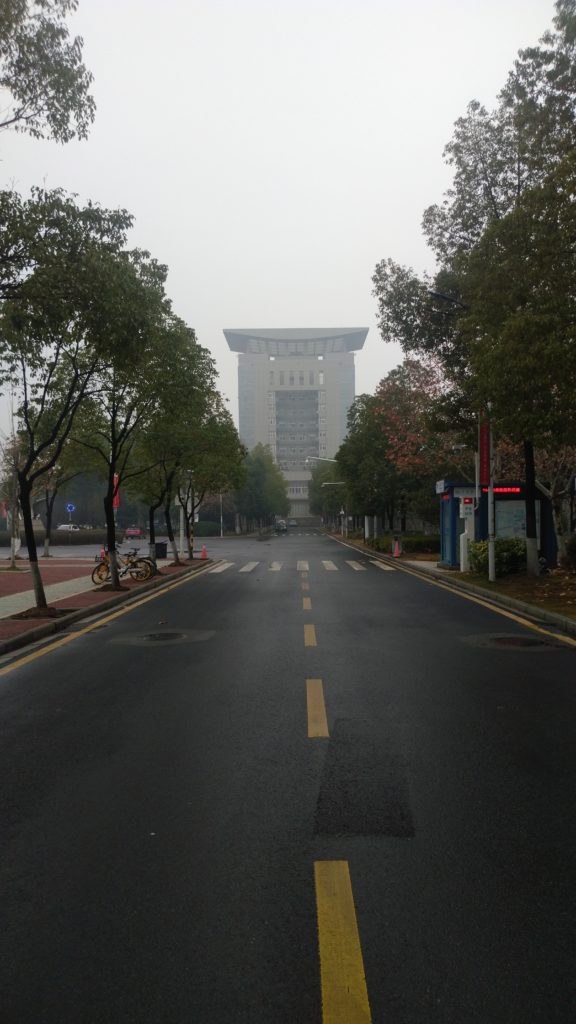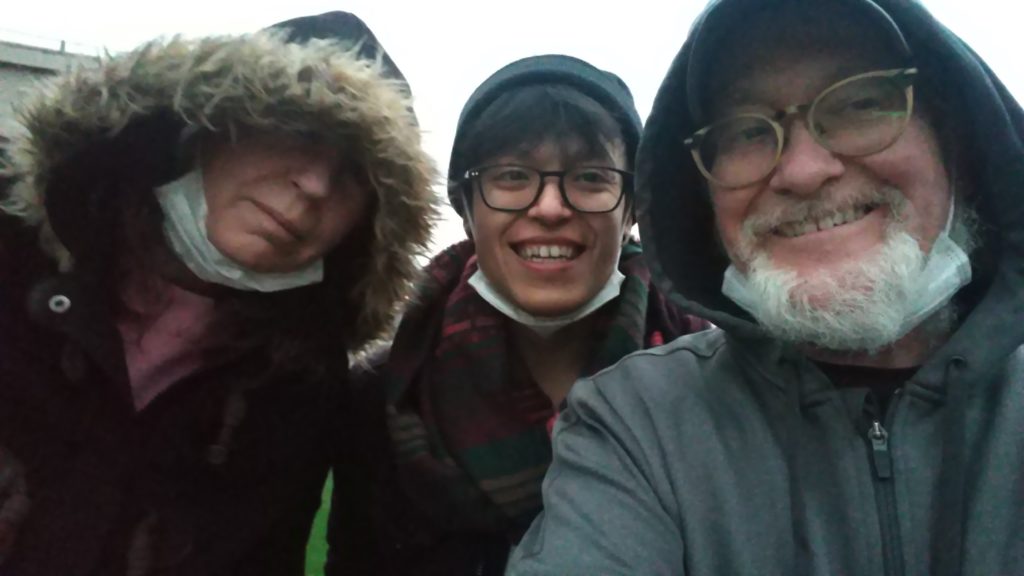
A humbled communication professional stands before you. This story tells how Wuhan and the coronavirus continue to teach me about life. Maybe the lessons will help you.
I wrote a book called Seeking Balance. The work provides common-sense advice on speaking English in daily situations. I was proud of my two-year effort and considered myself a knowledgeable communication pro.
Then the coronavirus hurricane hit, blowing away my smug attitude about publishing a book and showing me my learning days are far from done.
An unexpected test
The unexpected test began while finishing a six-year stint in the fascinating city of Wuhan. I had resigned from my position as an oral English lecturer at Jianghan University and was planning to return to the United States in early February.
Trouble began to brew on January 5, 2020, when my brother warned me of a mysterious virus in Wuhan. Bit by bit the virus spread and now threatens the entire world.
My recent past includes six weeks in quarantine in Wuhan and Miramar Marine Base in San Diego. This article looks to find meaning in the journey.

Lessons learned
What lessons do Wuhan and the coronavirus continue to teach? Here’s what I think:
Lesson 1: Life is short and unpredictable.
Nothing speaks to me more than how circumstances quickly change. Life goes in a matter of minutes from planning a return to the U.S. to worrying about surviving in a quarantined Chinese city of 11 million frightened people.
We live fragile lives. Don’t wait to do what’s important. Say what needs to be said. Do what needs to be done.
Lesson 2: Words make up the currency in times of crisis.
Words become powerful in tough situations. Money, looks, possessions, social media contacts, or position mean little compared to comforting, knowledgeable, or helpful comments when under a life-threatening situation.
Difficult conversations in a crisis:
How do you respond with grace under pressure when people speak words of fear, panic, selfishness, false bravado, prejudice, lies, or gossip?
What rational words work when a friend suspects you of spreading invisible germs?
What words calm a distraught person screaming because they can’t contact their family on a computer that has no Internet?
What brave words encourage a friend who hasn’t been outside their 900-square-foot apartment in six weeks?
How do you respond when a Wuhan emergency worker says he receives regular calls regarding people jumping out of buildings?
Where do you find the right words to encourage a sick friend?
We ignore or devalue words when all is well. Money, looks, and power seem so much more important.
Wuhan taught me people crave words like water in the desert when things turn desperate. How do you find the right ones?

Lesson 3: Crisis requires team building
Maybe you don’t realize it but you’re on a team. Family, work, or friends provide the majority of our teams but new teams spring up all the time. Good teams need members who understand the importance of sharing information, skills, and support.
A crisis situation requires immediate team building. Our Wuhan coronavirus team included friends, Jianghan University teachers and staff, community and social media contacts, the media, and Chinese and U.S. government officials.
A team proves to be an invaluable asset in dealing with a dangerous and unknown entity like a virus. Nationality, rank, color, age, or sex makes no difference. Prejudice has no place. Knowledge is king.
The media provides a perfect example. News reporters are valuable crisis team members. Good journalists uncover important information and share it. Too many people believe today’s false narrative that the media is the enemy.
Many reporters helped our Wuhan team by sharing important information. I know they will continue to do an excellent job in reporting the coronavirus, especially in China’s challenging communication-resistant environment.
The team thrives when members understand the most important skill involves knowing what information to spread and what induces unnecessary worry.
Today’s internet streams non-stop conspiracy theories, falsehoods, distortions, and lies. Keeping the team calm requires knowing what to share and what to flush.
Lesson 4: Crisis takes a toll
The war doesn’t end when the shooting stops. The emotional impact from facing danger lingers after life returns to “normal.”
I left Miramar Marine Base quarantine one week ago but confusing thoughts continue.
How are my Wuhan friends doing? They write less each day and when they do the cryptic messages say things such as “I want so out of here.”
The actions of “normal” people over insignificant life issues now seem shallow and petty. What’s important?
What does the future hold for society facing the spread of even more-deadly viruses? Will humans produce viruses that kill people with certain genetic make-up or age?
Will these worries fade over time or has the experience changed me?

Final thoughts
I took a graduate-level class in life these past two months. Yes Seeking Balance does a good job of building English-speaking skills in “normal” situations but life isn’t always normal.
My Wuhan coronavirus experience taught me a new normal. A virus doesn’t respect governments, political parties, boundaries, walls, or philosophies. The world faces this situation as one. More world issues are sure to follow.
The best personal advice I can give if the coronavirus comes to your town is wash your hands a lot, maintain a six-foot social distance from people, and be a positive force in the face of danger.
I pray you stay healthy.
